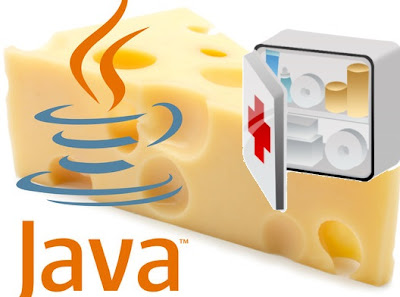TeamSpeak Official Forum Hacked! Infecting Users By Malicious DotCache Exploit Kit
A serious security breach has compromised official forum of TeamSpeak, according to sources hackers have gained access inside the server and injected malicious script into the landing page of TeamSpeak official forum. Expert malware analyzer have figured out that the attack was thoroughly planned in order to infect millions of users while redirecting them to a DotCache exploit kit landing page as illustrated below
TeamSpeak is a very famous Brazilian company who offers (VoIP) software that allows computer users to speak on a chat channel with fellow computer users, much like a telephone conference call. Users use the TeamSpeak client software to connect to a TeamSpeak server of their choice, from there they can join chat channels and enjoy the excellent VoIP service. Mostly it is used by millions of gamers across the globe.
 Basically we can consider TeamSpeak is a high value target, so did the hacker. Researchers said that the exploit kit landing page is hosted on atvisti.ro, a forum for ATV enthusiasts that's also been compromised. In a statement well known malware analyst & security researcher Jerome Segura said- if the Java exploit succeeds the final payload is loaded. In this particular example, the payload was the Zero Access Trojan which an Anti-Malware from Malwarebytes detects as Rootkit.0Access. The matter of a bit relief is that the malware has not yet been spotted in the wild. According to a statistic by Virus Total, only 7 of 46 leading antivirus can detect this type of malware. Exactly like TeamSpeak, a few days earlier Kahu Security researchers uncovered a similar compromise on the forum for the Nissan Pathfinder Off Road Association (NPORA) in both cases, JJEncode was used to obfuscate the malicious script. To avoid further infection, TeamSpeak forum has already been informed, an as expected they have over come this issue. For detail analysis of the above said malware you can visit official blog post of Malwarebytes.
Basically we can consider TeamSpeak is a high value target, so did the hacker. Researchers said that the exploit kit landing page is hosted on atvisti.ro, a forum for ATV enthusiasts that's also been compromised. In a statement well known malware analyst & security researcher Jerome Segura said- if the Java exploit succeeds the final payload is loaded. In this particular example, the payload was the Zero Access Trojan which an Anti-Malware from Malwarebytes detects as Rootkit.0Access. The matter of a bit relief is that the malware has not yet been spotted in the wild. According to a statistic by Virus Total, only 7 of 46 leading antivirus can detect this type of malware. Exactly like TeamSpeak, a few days earlier Kahu Security researchers uncovered a similar compromise on the forum for the Nissan Pathfinder Off Road Association (NPORA) in both cases, JJEncode was used to obfuscate the malicious script. To avoid further infection, TeamSpeak forum has already been informed, an as expected they have over come this issue. For detail analysis of the above said malware you can visit official blog post of Malwarebytes. 
























